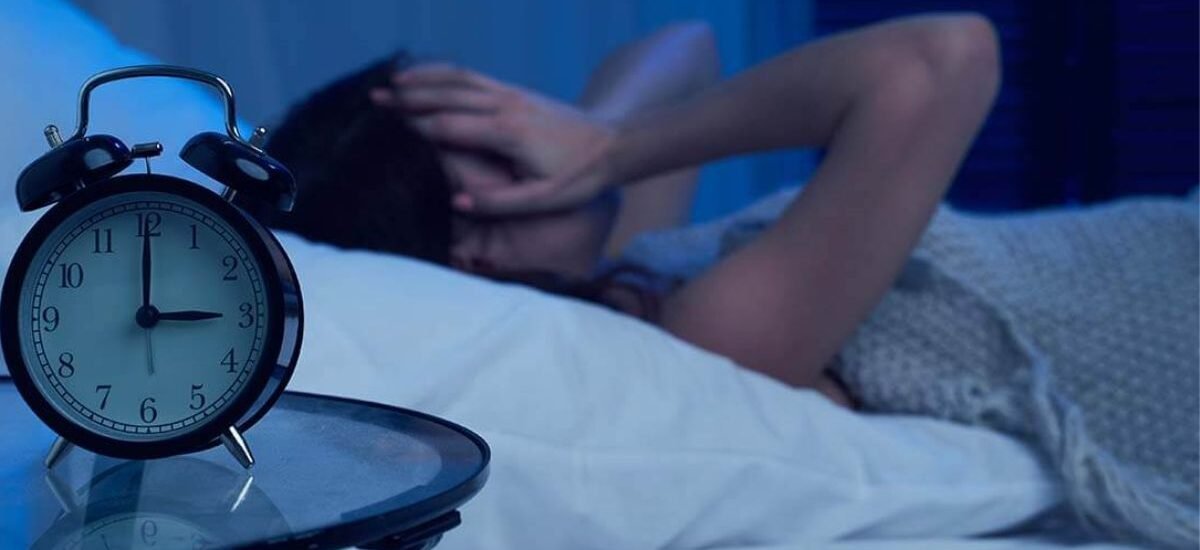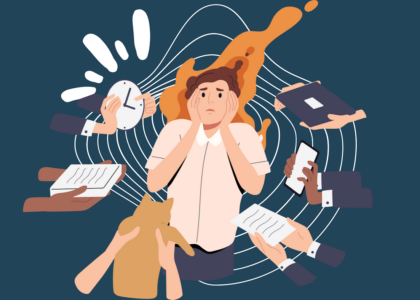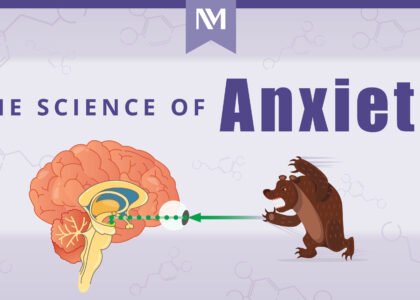Sleep is like the body’s natural reset button,”. “It allows both our mind and body to rest, repair, and rejuvenate. When this essential part of our lives is disrupted, well, you feel how it could be working for you.” Insomnia – a fancy term for the inability to fall or stay asleep – affects millions of people worldwide. Its effects on physical health have been documented well, but the effects on mental well-being are equally though perhaps more profound.
Although sleep disorders, including insomnia, are fairly well recognized nowadays, people often tend to associate it with a host of other mental conditions, such as anxiety, depression, and even more severe mental disorders like PTSD or bipolar disorder. Let’s look at how lack of sleep not only disrupts your rest but also shapes your emotional and psychological state.

1. The vicious circle: insomnia and anxiety
Anxiety and insomnia are almost always interlinked, as they support each other in a vicious cycle that is not easy to break. Quiet hours of the night might provoke a flurry of intruding thoughts, anxiety, and high levels of stress for those who suffer from anxiety disorders. Restlessness in their mind makes it hard to get some sleep, which contributes to insomnia. The resulting sleep deprivation increases the symptoms of anxiety; hence, a person wakes up feeling even more anxious the following day.
Individuals with anxiety are observed to have higher cortisol levels, which is the stress hormone. This can also perpetuate their condition, as higher levels of cortisol slow down the body’s ability to achieve those deep, restorative stages of sleep. People are left feeling restless and unrefreshed because of this lack of sleep, which in turn worsens the individual’s anxiety in a cause-and-effect cycle.
2. Depression and Insomnia: A Double-Edged Sword
Insomnia and depression have an interdependent relationship. The explanation for this correlation is not only that the symptoms of depression commonly cause sleep disturbance, but that disturbance in sleep can also trigger or worsen depressive symptoms. Indeed, problems with sleep frequently are one of the first symptoms of depression.
This may come across as awakenings in the early morning hours, sleep onset insomnia, or in middle of the night, and often causes the sleep problem to be severely exacerbated. In some ways, insomnia may make the pain of depression feel more unbearable when a person is unable to sleep and is in increased discomfort. Lack of sleep causes irritability, difficulty concentrating, and an intense feeling of helplessness. All these are core symptoms of depression.
Insomnia is known to be one of the major risk factors for the development of depression, and the sleep-disordered patients are more likely to report depressive symptoms and many depressive symptoms that continue without remission. Moreover, in some cases, the treatment of insomnia may result in lowering the level of depressive symptoms experienced. Thus, these two conditions are greatly interrelated.
3. Insomnia and PTSD: Struggle for Rest
Another psychiatric disorder that could very closely be related to insomnia is post-traumatic stress disorder, or PTSD. Victims of PTSD characteristically experience flashbacks, nightmares, and involuntary recollection of events linked to the trauma they have been through. Such incredibly vivid and upsetting dreams could easily trigger them, making them disturb sleep a lot.
This might be a little issue of feeling tired the next day for people who have PTSD, but deepened feelings of anxiety and fear can really cut into the remediation of PTSD. The emotional price of disturbed nights can also make it harder for someone to process trauma, making healing impossible and recovery impossible. CBT, trauma-focused treatments, helps both at once by offsetting the cycles of disturbed sleep and emotional distress.
4. Deterioration of Cognitive Abilities and Insomnia: The Burden on Mental Operations
Chronic insomnia leads to lifetime cognitive functioning. Sleep, therefore, is where the brain solidifies its memories, processes information, and maintains cognitive performance. Continuous lack of adequate sleep will leave people poor in concentration and recalling memory, and not making decisions. Over time, this weakening of the brain can slowly make people deteriorate mental health cases like anxiety and depression, and it becomes really hard to handle everyday life.
Some even claim that chronic insomnia can be one of those precursors, harbingers of other, more dangerous conditions, such as Alzheimer’s and dementia. When someone doesn’t sleep properly for a long time, the person cannot flush out the toxins in the brain, which impacts the working capability of the brain in all sorts of ways.
5. Insomnia and Bipolar Disorder: A Fine Balance
Bipolar disorder is characterized by recurrent extreme mood swings, between the manic and depressive conditions, or episodes, as another condition closely related to sleep disturbances. In these cases, insomnia is often the first sign of a manic episode that hints at the chances of a mood swing. People suffering from bipolar disorder become highly energetic, full of racing thoughts, and often cannot wind down. On the other hand, in bipolar disorder, hypersomnia, or sleepiness, marks the depressive episodes with an attempt to pull oneself out of the undercurrent feelings of low mood.
The disrupted sleep cycle in bipolar disorder appears to worsen the gravity of both the maniacal and depressive episodes, with which follows the susceptibility to recurring cycles. Management of bipolar disorder includes the involvement of both pharmacological as well as psychotherapeutic interventions for the two main essentials: sleep regulation and mood stabilization.
6. Effects of Insomnia on Emotional Regulation
What it means is that sleep deprivation impacts emotional regulation in the brain; sleep-deprived people flit between irritability, mood swings, and impulsive behavior. The amygdala, which appears to be overactive, is the part of the brain which deals with fear and other stress-related emotions, whereas the prefrontal cortex, which is responsible for checking such emotions, is relatively low in activity. This makes the sleeper much more sensitive to states of emotional arousal or has bad tolerance for stress.
For those with emotional dysregulation linked to their mental health issues, this may definitely exacerbate their condition in terms of hopelessness or panic. Proper sleep is essential for emotional resilience as well as in dealing with mental health.
7. Breaking the cycle: treatment options
Fortunately, insomnia and co-occurring mental health conditions are responsive to treatment. Elimination of the underlying causes for insomnia, such as anxiety, depression, or other mental health disorders, is fundamental to breaking the cycle.

A few types of treatment include:
- Cognitive Behavioral Therapy for Insomnia or CBT-I: This is an evidence-based highly effective treatment where this form of therapy focuses on changing the stream of negative thoughts and behaviors that might compromise sleep. CBT-I is particularly useful to a sufferer of insomnia with concomitant anxiety or depression.
- Medication: In some cases, prescription medications-possibly antidepressants or sleep aids-like Ambien-can also treat the insomnia and help with problems of mental health that accompany it. Again, however, those must be used under healthcare provider supervision in order to avoid issues of dependency or side effects.
- Lifestyle modification: Improve sleep hygiene; practice relaxation techniques such as meditation or deep breathing; create a soothing bedtime routine to help improve sleep and reduce symptoms of anxiety and depression.
- Therapy and Counselling Support: One can have interactions with a therapist or counselor to cope up with the unconscious psychological problems that have stemmed due to insomnia. Therapy can teach coping skills to help in better management of anxiety and depression, and with time improves sleep and betterment in mental health.
Conclusion
Insomnia is not just a hassle but will also seriously disrupt mental health, breeding conditions such as anxiety, depression, PTSD, and much more. First and foremost, one needs to acknowledge that poor sleep and mental well-being correlate. Hope lies in both treatments for sleep and mental health enhancement, hence it’s a break cycle from insomnia to emotional distress. If you suffer from poor sleep, these steps to seek a healthcare provider or mental health professional are very important to regain your peace of mind along with your overall health.























